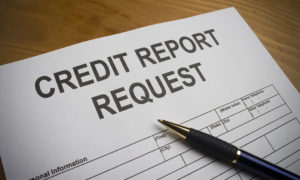Flitter Milz Attorneys meet with JAG officers at local bases to discuss Military Consumer Law
 This past summer our attorneys visited Joint Base McGuire-Dix-Lakehurst in New Jersey and Dover Air Force Base in Delaware to educate military lawyers (commonly known as Judge Advocates General or “JAGs”) about common scams targeting servicemembers and how consumer protection laws exist to give our men and women in uniform some measure of relief.
This past summer our attorneys visited Joint Base McGuire-Dix-Lakehurst in New Jersey and Dover Air Force Base in Delaware to educate military lawyers (commonly known as Judge Advocates General or “JAGs”) about common scams targeting servicemembers and how consumer protection laws exist to give our men and women in uniform some measure of relief.
Scams to our Servicemembers
 Young and impressionable servicemembers often become targets of scammers. Factors such as reliable pay checks and great military benefits, as well as being subject to sudden deployment and relocation, make servicemembers easy prey for payday lenders, buy-here-pay-here auto dealers, and sub-prime finance companies.
Young and impressionable servicemembers often become targets of scammers. Factors such as reliable pay checks and great military benefits, as well as being subject to sudden deployment and relocation, make servicemembers easy prey for payday lenders, buy-here-pay-here auto dealers, and sub-prime finance companies.
The Law is on your side
 Fortunately, the “Military Lending Act” places caps on interest rates to be charged, mandates certain disclosures, and prohibits the use of arbitration clauses in credit agreements. A violating seller can face punitive damages and having to pay the servicemember’s attorney fees.
Fortunately, the “Military Lending Act” places caps on interest rates to be charged, mandates certain disclosures, and prohibits the use of arbitration clauses in credit agreements. A violating seller can face punitive damages and having to pay the servicemember’s attorney fees.
 The “Servicemembers Civil Relief Act” or SCRA provides additional protections. It says a creditor may not take a default judgment against an active servicemember. SCRA requires a landlord abide protections for leasing rentals to active military, and empowers courts to stay (or temporarily halt) certain foreclosure and repossession proceedings. The servicemember can also seek damages and their attorney fees for a violation.
The “Servicemembers Civil Relief Act” or SCRA provides additional protections. It says a creditor may not take a default judgment against an active servicemember. SCRA requires a landlord abide protections for leasing rentals to active military, and empowers courts to stay (or temporarily halt) certain foreclosure and repossession proceedings. The servicemember can also seek damages and their attorney fees for a violation.
Consumer Protection Laws for Servicemembers
Of course, all the other consumer protection laws Flitter Milz, PC routinely uses are also available to servicemembers. We have had military clients utilize the Fair Credit Reporting Act (FCRA) to remedy errors on their credit profiles that kept them from getting a promotion or security clearance. Others have used the Fair Debt Collection Practices Act (FDCPA) to stave-off harassing collection attempts and repos. Over all, we have helped thousands of consumers get relief from abusive commercial practices.
Seek Legal Help at No Cost
 Flitter Milz is a nationally recognized consumer protection law firm that assists servicemembers who have become victim to credit reporting privacy and accuracy violations, abuse from debt collectors, and vehicle repossessions by aggressive lenders and repo agents.
Flitter Milz is a nationally recognized consumer protection law firm that assists servicemembers who have become victim to credit reporting privacy and accuracy violations, abuse from debt collectors, and vehicle repossessions by aggressive lenders and repo agents.
If you’re a servicemember who has been exposed to unfair, fraudulent or deceptive conduct by a business, CONTACT US for a no cost consultation. We may be able to help.
Pictured above: Attorneys Cary Flitter (center), Andy Milz (left), Jody López-Jacobs (right).


 An individual or business may request access to a consumer’s credit file, but they must obtain written permission from the consumer. Often, during the process of applying for credit, interviewing with a prospective employer or landlord, or applying for utilities, there may be a request to access the consumer’s credit file. Many times the credit application will serve as written permission. Other times, a specific document will be presented to the consumer for his or her signature.
An individual or business may request access to a consumer’s credit file, but they must obtain written permission from the consumer. Often, during the process of applying for credit, interviewing with a prospective employer or landlord, or applying for utilities, there may be a request to access the consumer’s credit file. Many times the credit application will serve as written permission. Other times, a specific document will be presented to the consumer for his or her signature. Consumers must
Consumers must 

 Flitter Milz is a nationally recognized consumer protection law firm that represents consumers in matters involving credit reporting accuracy and privacy.
Flitter Milz is a nationally recognized consumer protection law firm that represents consumers in matters involving credit reporting accuracy and privacy. 
 Identity theft happens when someone uses your personal or financial information without your permission. It can damage your credit status and ability to utilize credit. If you suspect someone has stolen your identity, it’s important to take action immediately. The consequences can be disastrous, but following these steps will help secure your information and prevent your credit from getting tarnished by someone else’s actions.
Identity theft happens when someone uses your personal or financial information without your permission. It can damage your credit status and ability to utilize credit. If you suspect someone has stolen your identity, it’s important to take action immediately. The consequences can be disastrous, but following these steps will help secure your information and prevent your credit from getting tarnished by someone else’s actions. File a Police Report with the local police department and request a copy of the report for your files. A copy of the police report must accompany all disputes to the bank and or creditor.
File a Police Report with the local police department and request a copy of the report for your files. A copy of the police report must accompany all disputes to the bank and or creditor. When you discover suspicious charges or withdrawals on an account, immediately contact the bank or creditor and inform them that the charges were not made by you. Follow up the call with a letter confirming specific details of the issue. Keep a copy of all correspondence for your files.
When you discover suspicious charges or withdrawals on an account, immediately contact the bank or creditor and inform them that the charges were not made by you. Follow up the call with a letter confirming specific details of the issue. Keep a copy of all correspondence for your files. Identity Theft must be reported to the Federal Trade Commission through submission of an Identity Theft Affidavit. This form must be completed and signed in the presence of a law enforcement officer, then submitted to the Federal Trade Commission.
Identity Theft must be reported to the Federal Trade Commission through submission of an Identity Theft Affidavit. This form must be completed and signed in the presence of a law enforcement officer, then submitted to the Federal Trade Commission. After discovering suspicious activity on a credit card or bank account statement, contact the three main credit bureaus – Transunion, Experian and Equifax – to place a fraud alert on your credit file.
After discovering suspicious activity on a credit card or bank account statement, contact the three main credit bureaus – Transunion, Experian and Equifax – to place a fraud alert on your credit file. Request a copy of your credit report
Request a copy of your credit report After review of your credit reports and identification of accounts that do not belong to you, a Blocking Letter should be sent to the credit bureau. The Blocking Letter confirms:
After review of your credit reports and identification of accounts that do not belong to you, a Blocking Letter should be sent to the credit bureau. The Blocking Letter confirms: Organize your files with all information related to the identity theft. As each case of identity theft is unique, it can take months, or even years to untangle the fraud and restore your credit.
Organize your files with all information related to the identity theft. As each case of identity theft is unique, it can take months, or even years to untangle the fraud and restore your credit.






